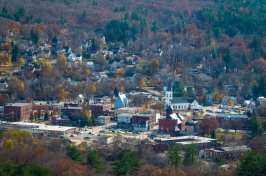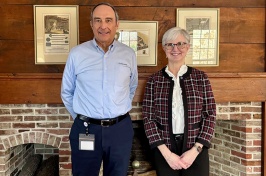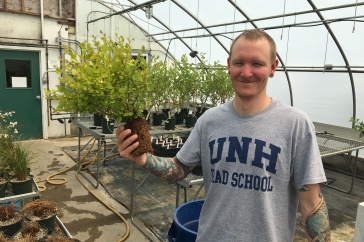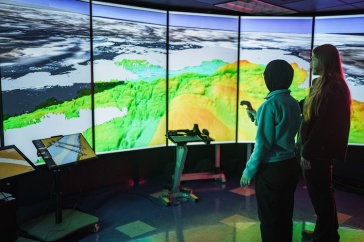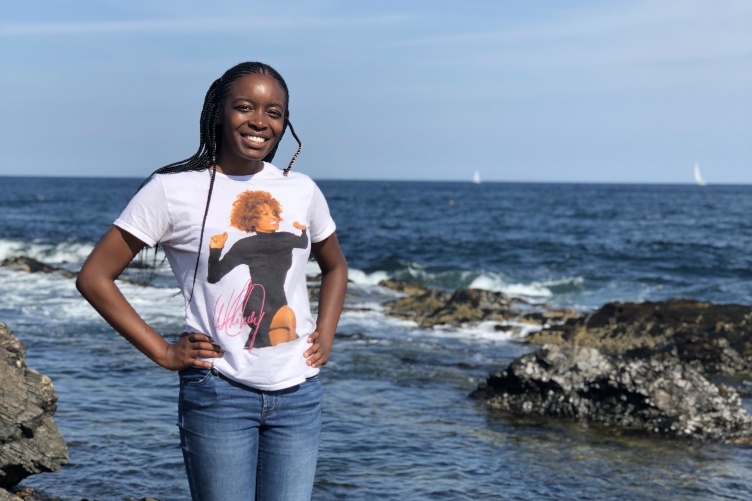
Simone Chapman ’20G, a master’s student in environmental conservation at UNH, has received a Science Policy Fellowship from the Gulf Research Program of the National Academies of Sciences, Engineering, and Medicine. One of nine 2020 fellows, Chapman will spend one year on the staff of the Tampa Bay Regional Planning Commission helping develop metrics for community vulnerability and affordable housing, support production of geospatial data, analyze housing policy and aid in the development of a plan for climate resiliency.
“As a person of color, I wanted to give back, and policy seemed like a place to have influence and advocate for these vulnerable communities.”
“I’ll help integrate affordable housing policies into climate vulnerability assessments and resilience planning for communities who are vulnerable to flooding, extreme heat and other climate change effects,” says Chapman. The Tampa Bay Regional Planning Commission is an association of local governments and gubernatorial representatives who serve citizens and member governments by providing a forum to foster communication, coordination, and collaboration in identifying and addressing issues and needs regionally.
Chapman recently defended her master’s thesis, looking at socioeconomic and demographic differences between locations where wetland functions and values are lost (due to construction) and where they’re gained. She also published a Carsey brief that examined New Hampshire residents’ knowledge and public opinion about dam removals, emphasizing the need for more widespread knowledge of natural resource management options.
“Simone is determined and poised to make a significant contribution to policy at the intersection of climate change and environmental justice,” says her advisor, assistant professor of natural resources and the environment Catherine Ashcraft. “She brings her positive energy to the Environmental Policy, Planning, and Sustainability Lab, where she’s modeled motivation, flexibility, and fearlessness about trying out new research approaches and developing her research ideas, as well as expanding partnerships within UNH and with external partners.”
A self-described “treehugger and ecofreak,” Chapman gravitated toward policy work as an undergraduate environmental studies major at Temple University. “I realized that low-income, minority and Indigenous communities were getting hit harder by climate change and environmental issues,” she says. “As a person of color, I wanted to give back, and policy seemed like a place to have influence and advocate for these vulnerable communities.”
Now in its fifth year, the Gulf Research Program’s Science Policy Fellowship helps scientists hone their skills by putting them to practice for the benefit of Gulf Coast communities and ecosystems. Nine fellows from a range of scientific disciplines gain firsthand experience as they spend one year on the staff of federal, state, local, or non-governmental environmental, natural resource, oil and gas, and public health agencies in the Gulf of Mexico region.
-
Written By:
Beth Potier | UNH Marketing | beth.potier@unh.edu | 2-1566




























